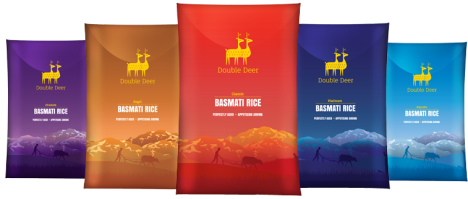KIRORIMAL KASHIRAM MARKETING AND AGENCIES PVT. LTD. V. SHREE SITA CHAWAL UDYOG MILL
Kirorimal Kashiram Marketing and Agencies Pvt. Ltd. v. Shree Sita Chawal Udyog Mill
2010 (44) PTC 293 (DEL)
Facts:
The Plaintiff was user of the registered trademark ‘Double Deer’ with respect to the product rice since 1985. The Defendant was using the mark ‘Golden Deer’ with respect to rice. The Plaintiff filed an application for injunction against the Defendant on grounds that the Defendant’s mark is deceptively similar to his trade mark.
The learned Single Judge of the Hon’ble High Court of Delhi compared the two trademarks to hold that neither the artistic design nor the words nor the colour combination of the Defendant’s mark was common with the design of the Plaintiff’s trademark. He dismissed the application for injunction with observation that there is no chance of confusion because the Plaintiff’s goods were not known by the name of ‘Deer’ alone. Aggrieved, the Plaintiff appealed before the Division Bench of the Hon’ble High Court of Delhi.
Arguments on behalf of the Plaintiff/Appellant:
Rice may be purchased by illiterate persons who purchase the same only by looking at the figure of the deer. They would not go into the nicety of the fact whether there are two deers (Double Deer) or one deer (Golden Deer). Therefore, the use of the word ‘Deer’ by the Defendant amounts to infringement.
Arguments on behalf of the Defendant/ Respondent:
There is no deceptive similarity between the two trademarks.
The claim of injunction is barred by delay and laches in as much as the Respondent has been using the mark since 1999 and the suit was filed much later.
There are other users of the trademark ‘Deer’ including for that of rice and therefore the word mark ‘Deer’ is common to the trade.
Court’s Observations:
The Division Bench was of the opinion that the learned Single Judge has fallen into an error in declining the grant of interim injunction to the Appellant because the overriding aspect in this case is that ‘Deer’ is a prominent part of the Appellant’s trademark and copying of a prominent part of a trademark leads to deceptive similarity especially when the product of both the parties is the same.
The expression ‘Deer’ was arbitrarily adopted by the Appellant with respect to his product being rice. The arbitrary adoption of a word mark with respect to a product with which it has no co-relation is entitled to a very high degree of protection, more so, when the Appellant’s trademark is a registered trademark/
As held in James Chadwick and Bros. Lid. v. The National Sewin Thread Co. Ltd., as well as in Parle Products (f) Ltd. v. J.P. and Co. Mysore; AIR 1972 SC 1359, in an action for infringement what is important is to find out the distinguishing or essential feature of the trade mark already registered and the main feature or the main idea underlying the trade mark. The distinguishing feature of the Appellant’s mark is ‘DEER’.
Moreover, the overall similarity between the two names in respect of the same description of the goods needs to be considered to understand if it is likely to cause confusion (Amritdhara Pharmacy v. Satya Deo; AIR 1963 SC 449). The use of the mark ‘Deer’ is in respect of the same commodity, rice. Therefore there is every possibility of a confusion being created in the mind of the purchaser of rice that the product being sold by the Respondent is in fact a product that has emanated from or has been manufactured by the Appellant.
Moreover, the Court was not satisfied with the prima facie genuineness and credibility of the documents produced by the Respondent to prove that the Appellant’s claim for injunction was delayed. As regards the contention that others were also using the word mark ‘Deer’, the Court observed that the said trade mark ‘Deer’ was not being used with respect to the product rice but with respect to other products, therefore, the contention of the Respondent was misconceived that the word mark ‘Deer’ is common to the trade of rice.
The impugned order was set aside and an order for injunction against the Respondent was passed.
Author: Aadhya, National Law University, Odisha

